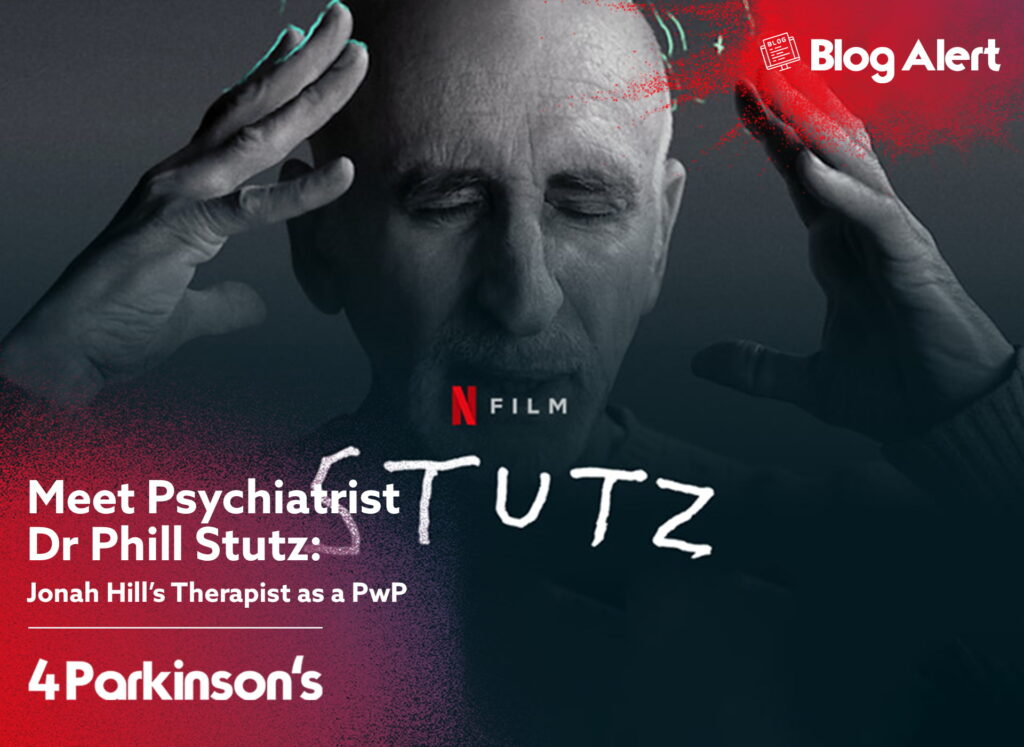

In the world of mental health and personal growth, few stories are as compelling as that of Dr. Phil Stutz, a renowned psychiatrist who has not only shaped the lives of his patients but also navigated his own journey as a person with Parkinson’s (PwP). Among his most notable clients is actor Jonah Hill, whose own struggles and triumphs have been influenced by Dr. Stutz's unique approach to therapy and life.
Dr. Phil Stutz's Background and Approach to Therapy
Dr. Phil Stutz's career in psychiatry is marked by an innovative approach to mental health challenges. He co-authored "The Tools," a groundbreaking book that offers practical techniques to confront life's difficulties. These tools, grounded in his extensive clinical experience and psychological insight, have helped countless individuals, including high-profile clients like Jonah Hill.
Stutz's approach is characterized by its focus on action and empowerment. He believes in harnessing the challenges one faces as opportunities for growth and transformation. This philosophy has not only benefited his patients but also guided him personally in his journey with Parkinson's disease.
Personal Battle with Parkinson’s Disease
Dr. Stutz’s diagnosis with Parkinson’s brings an additional layer of depth and empathy to his work. Parkinson's, a progressive neurological disorder, has presented him with challenges that he has met with the same resilience and proactive mindset he advocates in his therapy sessions. His personal experience as a PwP provides him with a unique perspective, enabling him to relate to and assist others with similar struggles.
Influence on Jonah Hill and Others
Jonah Hill, an acclaimed actor and director, has openly discussed the significant impact Dr. Stutz has had on his life. Hill credits Stutz with helping him navigate through personal and professional challenges, contributing to his emotional and mental well-being. This influence led Hill to direct a documentary about Dr. Stutz, showcasing the psychiatrist's therapeutic techniques and personal journey.
Inspiration Beyond the Therapy Room
Dr. Stutz’s story extends far beyond the walls of his therapy room. His resilience in the face of Parkinson’s, coupled with his dedication to helping others, serves as an inspiration. He demonstrates that personal hardships can be transformed into strengths, and that one's experiences can be a source of empowerment for others.
His relationship with Jonah Hill highlights the profound impact a therapist can have on an individual’s life, influencing not just their mental health but also their personal growth and creative expression.
Dr. Phil Stutz’s journey as a psychiatrist, a person with Parkinson's, and a mentor to figures like Jonah Hill, speaks volumes about the power of resilience and the human spirit. His life and work are a testament to the fact that even amidst life’s toughest challenges, one can find strength and purpose. Dr. Stutz not only navigates his own path with grace and determination but also lights the way for others to follow.
As one IMDb reviewer said, the film is "so good for the soul". It highlights the vulnerability of both Hill and Stutz as they discuss their experiences. It's a reminder that everyone is going through something and that there are tools to cope with psychological burdens.
See the review by Rodrigo Perez from The Playlist:
How's Jonah Hill doing these days? Because truthfully, if you lean in and think about it, we haven't seen the actor on screen all that much since he seemingly pivoted to directing with his promising debut, "mid90s," in 2018. In the four years since, we've seen him all of twice, more minor supporting roles in "The Beach Bum" and "Don't Look Up," a quick appearance on "Curb Your Enthusiasm," and some small animated voice work. His directing work feels more comparatively pronounced since an excellent episode of Adam McKay's "Winning Time," a Travis Scott music video, and his latest film, a documentary about his therapist and mental health.
While Hill indeed hasn't vanished, if you've casually been wondering where he's been, the actor/director's new Netflix doc "Stutz" answers that question on both practical and spiritual levels. His doc has been two years in the making, and he's also been taking a step back to take care of himself and his mind. Hill essentially merges his two recent passions, filmmaking, and mental health, together in "Stutz," a portrait of his therapist, whom he loves and feels has helped him immensely.
Hill's enthusiasm for where he is— a good, or at least better place, mentally— his therapist Dr Phil Stutz and the tools he has given Hill to cope with his anxiety, self-worth, and more issues is evident. Shot in black in white in Stutz's office—or so we think at first—deep emotional honesty and vulnerability are coursing through the doc. Hill wants to be honest about his problems because he feels his therapist has been a gift. Now, of course, the entire world can't hire Dr Stutz to be their therapist; throughout "Stutz," Hill examines, discusses, and shares the same tools that Stutz has given him and tacitly acts like a prominent mental health advocate. Therapy has helped Hill immensely, and he's hoping the joy, zeal, and wellness that Stutz has helped him achieve can be infectious if you take the journey to get right in the head.
One of the main characteristics of Stutz to Hill is that he is more proactive than most therapists (at least in Hill's experience). Hill details how he's been frustrated by therapists who listen and let the subject come to their conclusions. In this way, Stutz presents as more unorthodox, much more hands-on, challenging, and gently contentious, and he has a rigorous method for identifying problems, naming them, and finding solutions for them.
Some of these tools, visually modelled in the film, are titled "Aspects of Reality," "Life Force," "The String of Pearls," our "Shadow" self, the "Maze," and all these concepts that are outlined in the doc (and if you're interested, Netflix has carefully detailed all the tools in a blog post).
"Stutz," in many ways, could also be a doc about physical fitness if that were Hill's path to well-being; he's strongly advocating for the tools that helped him, and he is practically desperate to share them with you; he feels so strongly about their positive net effects.
Hill's journey centres on a lot of insecurity and self-image; his weight, fame, self-worth, how the media crippled his self-esteem through his physical appearance, how Oscar nominations and success didn't cure his unhappiness, and the like. Through "Stutz," Hill shares the universal truth that it doesn't matter how much fame and fortune you have; you're a human being ultimately, and if you're not happy and content with who you are with a person, all these privileges will help you cope, evade and manage your internal problems. Still, they won't heal you in the end. We can't escape who we are and how we feel about ourselves in the future if we're not honest with ourselves.
Honesty is a huge theme, and, at one point, Hill essentially calls bullshit on the façade, revealing that because of COVID and slowly shooting this doc over two years in various sessions, it could not be discharged in Dr Stutz's office. Instead, it's shot on a soundstage with greenscreen to look as if it's in Stutz's office; Hill even reveals he's worn a wig through parts of it because his hair has changed, and initially, he wanted the film to appear as if it was shot one time in one long session. Hill intends to deconstruct his movie, life, problems, and all by stripping down the artifice of it all. Tear it all down, get real, get well, and get to the heart of all his troubles.
Some of those problems are exacerbated by the death of his older brother— Jordan Feldstein, a music manager for Robin Thicke and Maroon 5, who passed away suddenly at 40 in 2017 from a DVT/pulmonary embolism—and confronting that pain takes time. So, for example, in the doc about Stutz and the therapist's methodologies, at first, the few times Stutz tries to ask questions about Hill, the actor/director immediately shuts down that line of questioning, positing that the doc is about Stutz and not him.
But through the course of the doc and constantly revisiting footage and the edit, he realises he's ultimately avoiding himself and eventually lets down his guard in the quest for truth.
"Stutz" in the end isn't revelatory per se, but it is deeply heartfelt, intimate, nakedly honest, and engaging. Hill's relationship with Stutz is strangely beautiful, not just a therapy and therapist relationship, but something that has blossomed into a true-found friendship. Whether that complicates their professional relationship is still being determined. Still, there is a deep love between the two men, and Hill makes sure to dive into the therapist's life story, his pains, and his current Parkinson's disease diagnosis. Indeed there's much more to come from Jonah Hill's filmmaking and storytelling career, and this interim, pandemic-shot doc about his road to healing is as raw, candid, and poignantly soul-bearing as you could hope for.
Join our community in spreading hope and strength. Tell us your unique journey with Parkinson's to uplift and empower others.